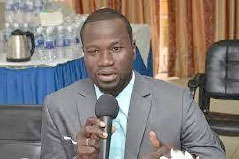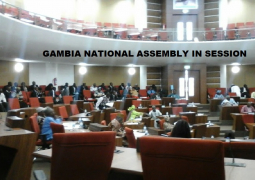
The Gambia confirmed it first case of covid-19 on 17 March 2021, leading to state banning all public gatherings, closed houses of worship, and scaled down the normal capacity of passengers for commercial vehicle and operational hours of markets.
Meanwhile, as of 31 October 2021, The Gambia has officially registered 9,965 coronavirus case, 340 deaths and 9, 611 recoveries.
The covid-19 pandemic has also hampered the business sector forcing many businesses people reduce their staff. The price of commodities increased across the world and The Gambia is no exception.
However, many economic activists have said the pandemic has a very serious effect on developing nations as well as individuals but it seems its devastation drastically affects jobless people.
Speaking to The Point exclusively, Abdul Aziz Njie, unemployed and resident of New Jeshwang, said: “The covid-19 has severely affected me because I could have money to give my parents to provide food for the family.”
He described his joblessness in the covid-19 pandemic as difficult and unfortunate, noting they find it very difficult to get their wants or provide basics for their families.
The unwaged youth said the lack of employment coupled with high cost of commodities has made life difficult for him and all unemployed youth.
He opined that the government should provide job opportunities for the young people in this trying times to ensure they have decent survival and help their parents.
“Government should provide us job opportunities. Every day, we will just converge here to look at one another; therefore, the President should help us.”
“No government officials have ever checked on us here and they should come and talk to us to know our problems and needs,” he said.
Ferrnanding Sarr, another jobless youth at Ebo Town in the Kanifing Municipality also complained bitterly: “The pandemic has affected me a lot because there is no money and you know that if there is no money one cannot provide anything for his or her family members. Since the pandemic came nothing is going well.”
The jobless youth said there is a need for the government to create more industries as well as invite many investors to set up factories to ensure the youth can be engaged.
Alasan Jawo, resident of Farato village in the West Coast Region also complained about the impact of the pandemic on him, saying since this deadly disease hit the country in 2020, he has found it difficult to live a decent life.
Jawo further said despite the joblessness in this trying times, government never support him in any means. “Some time I live a terrible life as I am not earning to sustain myself.”
“Government should provide job opportunities for us (youth). I just want to have any job that can make me earn decent salary”, the jobless youth said.
Momodou Lamin Gassama, a youth activist, said the covid-19 pandemic has a serious effect on youth related livelihoods, who are mostly engaged in the informal labour and small medium enterprise sub sectors without any coordinated support towards them.
However, the youth activist argued that central government’s commitment towards the youth still remains very low despite capturing youth empowerment as one of the main pillars of the National Development Plan, which certainly does reflect in government programmes, budget allocation, and political commitment.
“Currently, almost all efforts geared towards youth employment are from the Civil Society. Central Government has almost zero commitment towards job related initiatives with almost zero execution of the labour law which could have influenced decent and gainful employment opportunities for youth, a well coordinated job market, and better employability advantages for Gambian skilled youth,” the youth activist told this reporter.
According to the 2018 survey, which was conducted by the Gambia Bureau of Statistics (GBOS) in partnership with United Nation Development Programmes (UNDP) and subjected to Gambia Labour Force Survey (GLFS), youth unemployment rate stands at 41.5%.
The data also shows that 30.6 per cent of youth in the urban areas are unemployed and 69.4 per cent are unemployed in the rural areas. Basse (24.6%), Brikama (21.7%), and Kerewan (16.3%) had the highest proportions of unemployed youth.
With regards to this, Gassama opined that there is a need for government to ensure an effective coordination mechanism towards the implementation of the already existing national youth policy, national entrepreneurship policy, national labour policy and others in ensuring that there is an effective monitoring of all institutions that are playing a critical role in creating job for youth.
Adama Beyai, a youth development official at the National Youth Service Scheme (NYSS), said to address youth unemployment, government has to initiate policies and programmes that would make sure the youth are employed.
“Government should initiate training programmes which are marketable in the country,” he said.
Speaking further, he said government should make sure foreign companies that invest in the country employ eighty percent (80%) of Gambian youth.
This story was produced with support from Journalists for Human Rights (JHR), through its Mobilizing Media in the Fight Against COVID-19 in partnership with Mai-Media.





